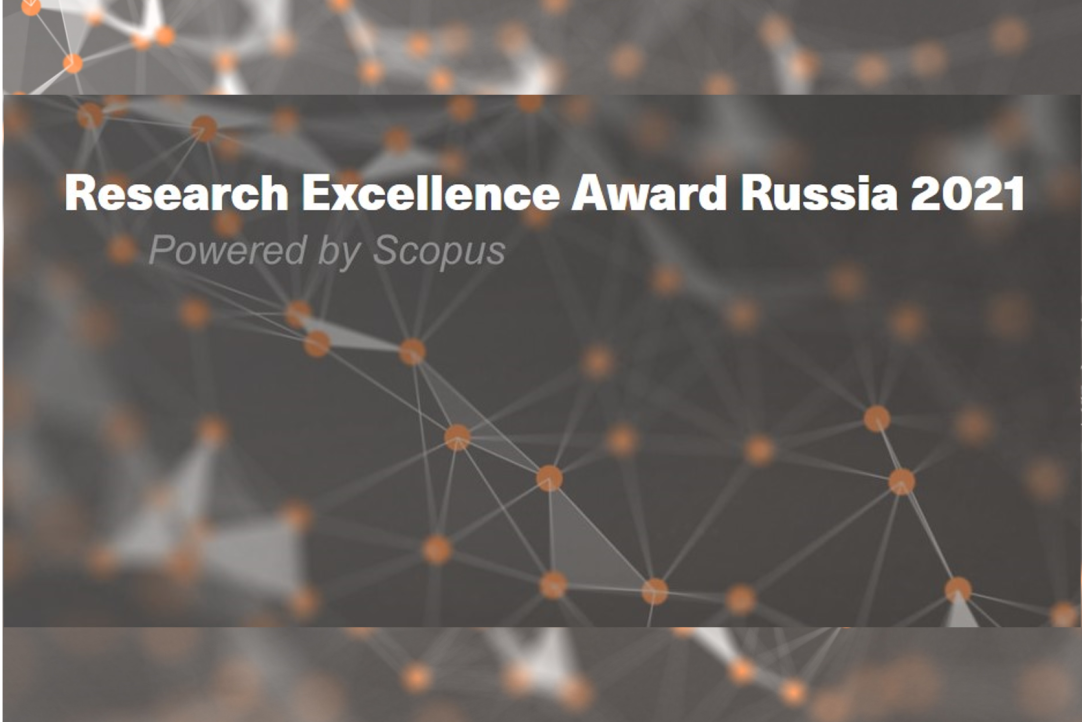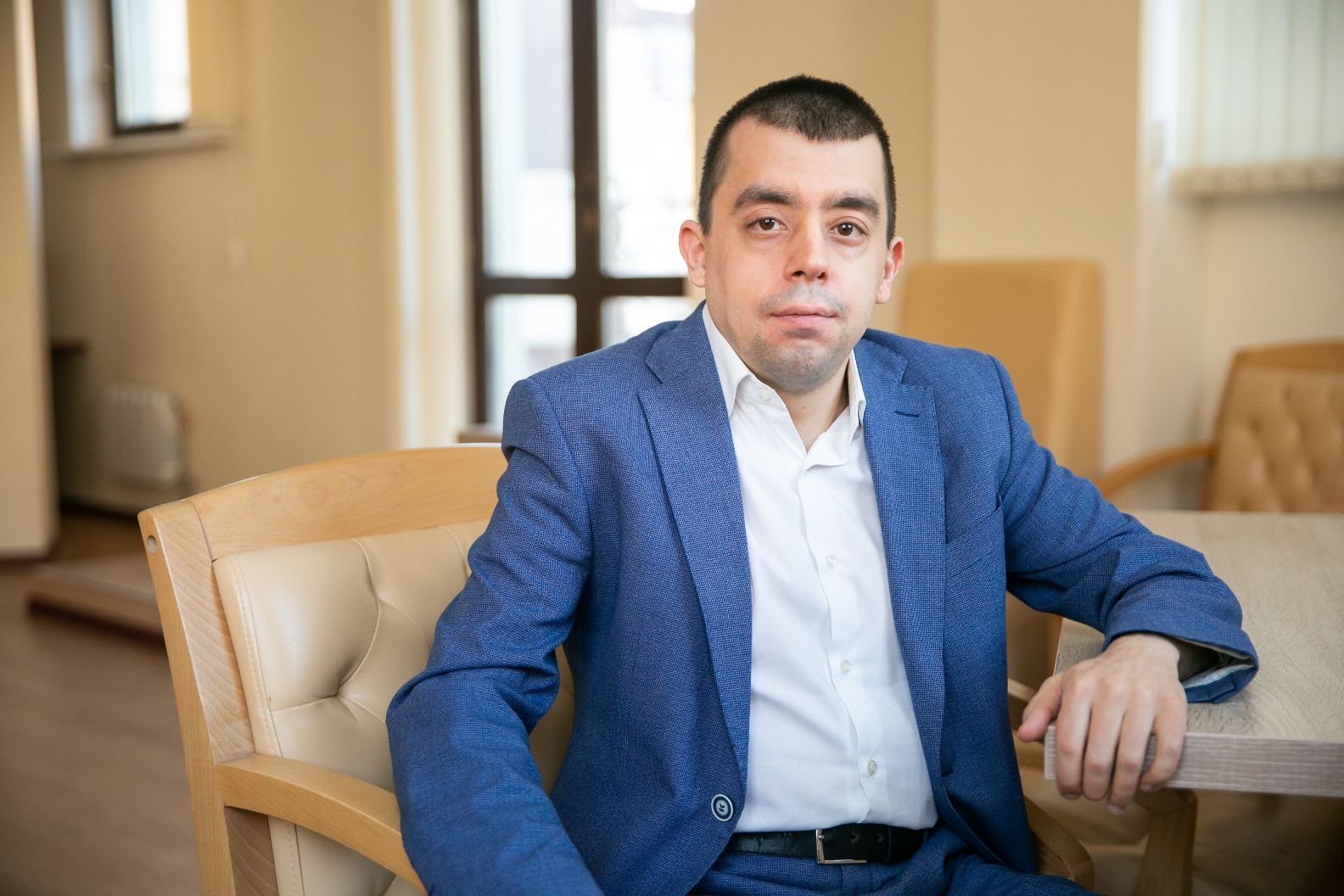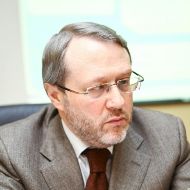Two HSE University Researchers Among Winners of Research Excellence Award Russia 2021

Elsevier (operated by Scopus) has awarded its prestigious Research Excellence Award since 2005. This year, it celebrates the Year of Science and Technology in Russia. On March 30, Elsevier awarded the winning scholars, which included Maxim Kotsemir, Research Fellow at the HSE Institute for Statistical Studies and Economics of Knowledge, and Dmitry Vetrov, Professor at the HSE Faculty of Computer Science.
The Research Excellence Award Russia is an award for the most prominent Russian scholars in the international context. This year, two representatives of HSE University were recognized in different categories. Maxim Kotsemir, Research Fellow at the HSE Institute for Statistical Studies and Economics of Knowledge, was awarded in the nomination ‘Most productive and cited Russian author in social science’ of the ‘Young Researcher’ category. Winners in this nomination are selected on the basis of indicators taken from Scopus – the world’s biggest database that contains summaries and citation statistics of peer-reviewed scholarly literature.
Maxim Kotsemir, Research Fellow, HSE Institute for Statistical Studies and Economics of Knowledge

‘Among my publications on Scopus, the five most cited (23 to 34 citations each) deal with issues such as analysing the impact of international academic cooperation on research outcomes; measuring the science, technology, and innovation potentials in BRIC countries; and assessing the effect of environmental innovation in Russian regions. These papers were written in co-authorship with Luigi Aldieri and Concetto Paolo Vinci from the University of Salerno (Italy) or with Dirk Meissner, Head of the HSE ISSEK Laboratory for Economics of Innovation.
It is interesting that in our projects with Italian colleagues, we studied the effects of international cooperation in academic research and demonstrated its positive impact on publication activity of leading universities in European countries, Russian universities, and Italian regions. Particularly, we found that publications prepared by international teams of authors were cited more than papers by authors from one country, and this award has somewhat confirmed our conclusion in practice.’
Maxim added that the news about the award has become a complete and very nice surprise for him. ‘I’m happy that the results of research and our effort on writing and communicating our papers have proved rewarding in terms of their visibility for the academic community. I want to express my deep gratitude to my Russian and international co-authors, who made a big contribution to the publications that were recognized by the award. I am particularly grateful to Sergey Shashnov, Alexander Sokolov and Dirk Meissner from HSE ISSEK, as well as my now regular co-authors from Italy, Luigi Aldieri and Concetto Paolo Vinci. By the way, thanks to meeting them in 2016 via ResearchGate, I fully understood the potential power of social media (and not only specialized ones, like ResearchGate and Academia.edu, but common ones as well, like Twitter and Facebook) in terms of publication discussion and promotion. I also value the environment at our Institute and HSE University at large, which motivates me to collaborate and sets a high standard for scholarly research.’
The academic community also highly assessed Dmitry Vetrov, Professor at the HSE Faculty of Computer Science and Head of the Centre of Deep Learning and Bayesian Methods. He was among the winners in the nomination ‘Contribution to the development of a globally relevant research topic’ for his work on ‘Convolutional neural networks’.
Dmitry Vetrov, Professor of the HSE Faculty of Computer Science and Head of the Centre of Deep Learning and Bayesian Methods

‘Is it possible to contract a taught neural network without damaging the quality of its operations and thus speed up its performance? Is it possible to build an effective ensemble of many neural networks in order to get additional growth in quality without additional memory costs? What unusual effect can be observed in neural network teaching process, what causes them, and how can they be used in practice? These issues were tackled in a number of studies where I participated and which were published at leading international conferences on artificial intelligence. These studies were acknowledged by the global academic community and became a beginning of new areas of studies, which are carried out today by various research teams across the globe.’
Only in the past year, Dmitry Vetrov’s papers were cited almost 1,200 times, according to Google Scholar. Meanwhile, Dmitry Vetrov emphasized that the high recognition of his work is a result of joint work with his colleagues from the Centre of Deep Learning and Bayesian Methods. ‘I would like to dedicate this award to my students, past and current: without their active contribution, I would not achieve even a tenth of what I have done in recent years.’
Leonid Gokhberg, First Vice Rector, Director of the HSE Institute for Statistical Studies and Economics of Knowledge

The Research Excellence Award Russia awards the achievements of Russian scholars whose research publications comply with international standards in terms of quantity and quality. Its assignment to HSE University scholars confirms the serious academic reputation of the University as one of the world’s leading research centres; it reflects the quality of the academic environment of the University as a whole and its departments, where the winners work. I am happy to congratulate my colleagues and wish them further professional success. For many of our scholars these awards will hopefully serve as an inspiration for higher academic achievements.
See also:
‘The Role of an Academic Supervisor Is Not about a Fixed Schedule’
Pavel Voloshchuk has been developing and researching educational products for 14 years. Since August 2024, he has led two master's programmes at the HSE Faculty of Computer Science: ‘Research and Entrepreneurship in Artificial Intelligence’ and ‘Master of Data Science.’ In this interview, he talks about his career path, time management, and the specifics of academic supervision.
Representatives of HSE University among Winners of Znanie.Lecturer Competition
On February 5, 2025, the National Centre ‘Russia’ in Moscow hosted an awards ceremony for the winners of the fourth season of the All-Russian competition Znanie.Lecturer organised by the Russian Society Znanie (translated as Knowledge in English). The winners included 70 lecturers from 37 Russian regions. Representatives of HSE University were among the best of the best.
Faculty of Economic Sciences Wishes Colleagues and Students a Happy New Year
As we look forward to 2025, FES professors have prepared a video message for students and colleagues. In this heartfelt address, they convey their warmest wishes, congratulations, and aspirations for a year filled with fruitful endeavors and remarkable accomplishments.
‘English Will Still Be the Global Language of Scientific Communication’
The HSE University Academic Writing Centre (AWC) was created to offer linguistic support to researchers writing articles in English. We spoke to the head of the AWC, Svetlana Suchkova, about the centre’s current initiatives, whether it has had to change the focus of its activities, and why HSE University staff come to the centre.
‘I Prefer Work to Most Types of Pastime’
Ivan Arzhantsev has headed up the Faculty of Computer Science since it was established in 2014. He has never been a specialist in Computer Science – all his life he’s been engaged in mathematics. On his 50th birthday, he shared with HSE Life how this has helped him to lead the best HSE faculty.
HSE University in Perm: The Upcoming Anniversary
On September 12, 1997, HSE University in Perm was established by decree of the Government of the Russian Federation. A year later, the university enrolled its first students.
'Learning what You Really Need'
Anastasia Likhacheva was appointed Dean of the Faculty of World Economy and International Affairs in November 2021. During her first six months in this position, she has faced numerous new challenges. In her interview with HSE University Life, she explains how she and the Faculty have been coping, why she spent just one year working outside of academia, and how prospective students can rethink their future careers in international relations.
'We Pursue Whatever Interests Us!'
MIEM HSE Professor Lev Shchur is celebrating his 70th birthday. In his recent interview with MIEM HSE News Service, he talks about the first scientific computer network created in the Soviet Union, the state of computational physics today, and the current online and offline work being conducted by his research team of undergraduates and faculty members.
Linguistic Pleasure: HSE University’s Academic Writing Centre
Founded in 2011, the Academic Writing Centre strives to help HSE University faculty improve their academic and research-writing skills in English. HSE University bulletin Okna spoke to several teachers and researchers who have used the AWC’s services over the decade.
‘Our Distinction Is Our Core Areas of Research’
In his interview for the HSE LooK, Evgenii A. Krouk, the Acting Director of HSE Tikhonov Moscow Institute of Electronics and Mathematics, talks about the distinctive features that set the institute apart, the place of project-based learning on the curriculum, research areas with the highest potential, and his vision for HSE MIEM future development.


